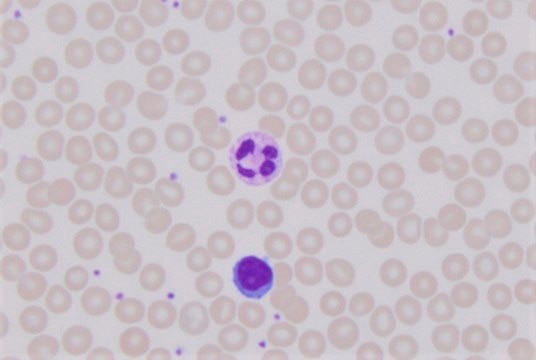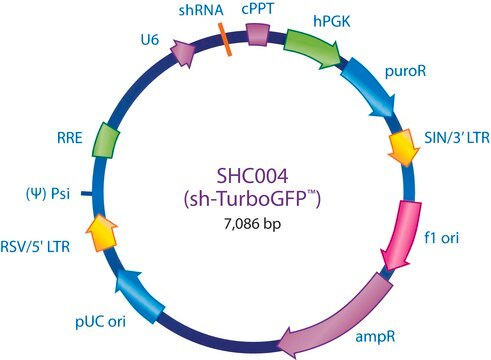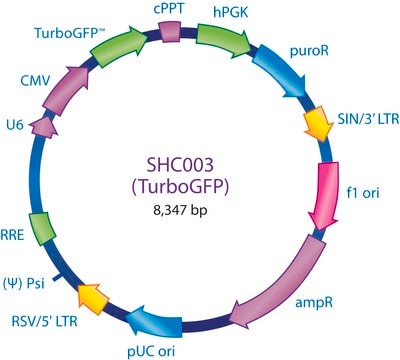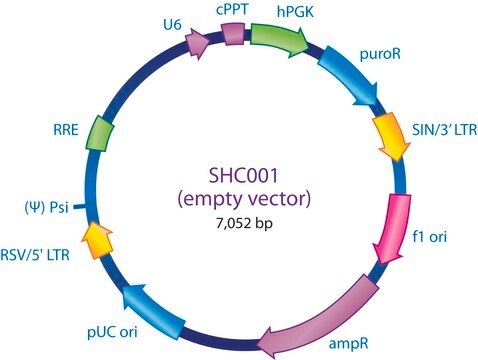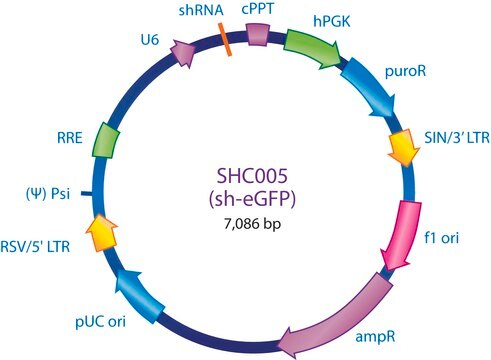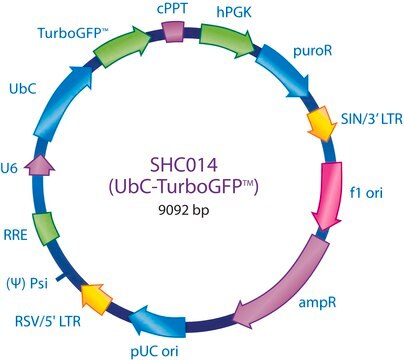OGS588
PSF-CMV-BLAST - CMV PROMOTER BLASTICIDIN RESISTANT PLASMID
plasmid vector for molecular cloning
Synonym(s):
cloning vector, expression vector, molecular cloning vector, plasmid, plasmid vector, snapfast vector, vector
About This Item
Recommended Products
form
buffered aqueous solution
mol wt
size 4639 bp
bacteria selection
kanamycin
mammalian cells selection
blasticidin
Origin of replication
pUC (500 copies)
Peptide cleavage
no cleavage
Promoter
Promoter name: CMV
Promoter activity: constitutive
Promoter type: mammalian
reporter gene
none
shipped in
ambient
storage temp.
−20°C
General description
Promoter Expression Level: PSF-CMV-BLAST - CMV promoter blasticidin resistant plasmid contains the mammalian CMV promoter to drive gene expression. We have tested all of our mammalian promoters in a range of cell types and CMV is consistently the strongest in those we have studied. However there are many reports of the CMV promoter demonstrating silencing by methylation in long-term culture.
PSF-CMV-BLAST - CMV promoter blasticidin resistant plasmid is a blasticidin resistant plasmid where expression is controlled by the CMV promoter. It allows the production of mammalian cell lines carrying the plasmid.
Application
By positioning all of our genes in the same location it allows them to be transferred between plasmids using the same cloning method and restriction sites regardless of the plasmid being used from our product range. Inserting a new gene into this plasmid should be easily possible using a range of standard restriction enzyme sites that flank the gene currently in the molecular cloning vector.
Multiple cloning site notes: In the multiple cloning site there are two important restriction sites called BsgI and BseRI sites. These sites both cut the DNA at the same position and cleave the stop codon of the gene in the multiple cloning site in this plasmid thereby producing a TA overhang. This overhang is compatible with any of our peptide or reporter fusion tag plasmids also cut with either of these enzymes. This allows seamless C-terminal fusions to be made with the gene in this multiple cloning site using a single cloning step from our C-terminal peptide and reporter tag product range. Normally the easiest method is to clone the C-terminal tag from our other plasmid products into this plasmid using BsgI or BseRI and the downstream ClaI restriction site.
BseRI and BsgI sites are non-palindromic and cleave a defined number of bases away from their binding sites. This allows them to cut the upstream stop codon in the gene in this plasmid regardless of the gene sequence.
Sequence
Analysis Note
related product
Flash Point(F)
Not applicable
Flash Point(C)
Not applicable
Certificates of Analysis (COA)
Search for Certificates of Analysis (COA) by entering the products Lot/Batch Number. Lot and Batch Numbers can be found on a product’s label following the words ‘Lot’ or ‘Batch’.
Already Own This Product?
Find documentation for the products that you have recently purchased in the Document Library.
Articles
Learn more about relevant restriction site functions in the SnapFast™ plasmid system. All DNA sections are pre-screened, and where possible modified, to remove any of the restriction sites found within the core SnapFast plasmids to maintain their flexibility.
A range of forward and reverse sequencing primers that allow you to sequence any insert that you make into a particular position within any plasmid. Where possible, the binding sites for each of these primers is conserved.
Our plasmids are composed of both a core vector backbone and a series of DNA components. Our plasmid platform is all built around the same core backbone, which means that the DNA components within each plasmids can be interchanged into each other.
Our team of scientists has experience in all areas of research including Life Science, Material Science, Chemical Synthesis, Chromatography, Analytical and many others.
Contact Technical Service